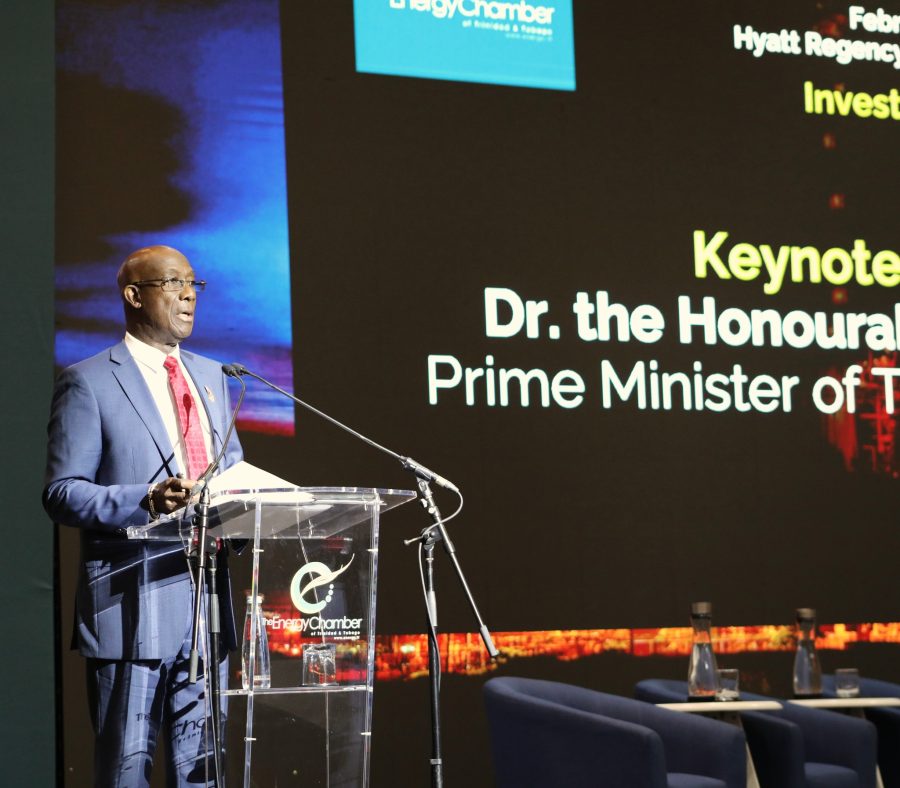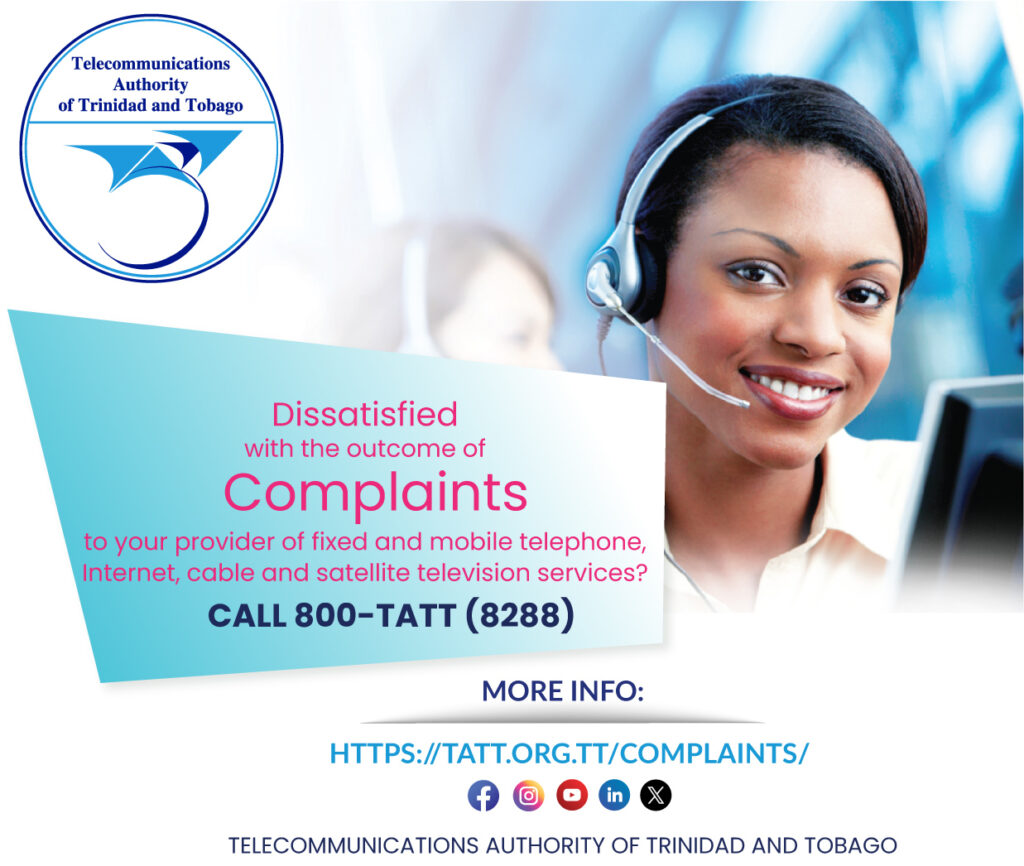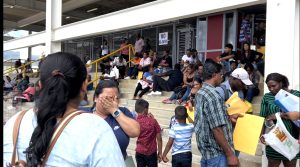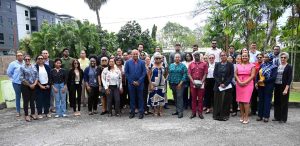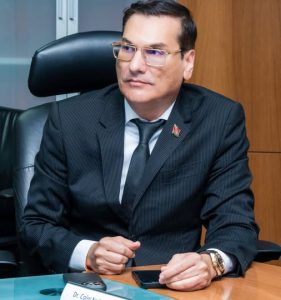Caption: Prime Minister Dr Keith Rowley at the Energy Conference 2025
By Prior Beharry
IN what he described as possibly his final address at the Energy Conference, Prime Minister Dr Keith Rowley delivered a progress report on Trinidad and Tobago’s energy sector, stressing his confidence in the industry’s future leadership.
“The Government, in collaboration with the Government of Venezuela and our energy stakeholders, have made great strides in advancing the development of both the Dragon project and the Manakin-Cocuina project,” Rowley stated.
He said, “We will be seeking to engage and apprise the new US administration of the importance of these projects not only to Trinidad and Tobago but to the energy security of the region.”
Reflecting on the challenges faced at the start of his tenure, Rowley said, “With low energy prices and delayed upstream investment, it became clear early that the known natural gas reserves would be unable to fully meet the requirements of the downstream companies and Atlantic LNG.”
He noted that the solution lay in looking beyond Trinidad and Tobago’s borders to Venezuela, where “large, untapped proven reserves exist,” leading to joint ventures like the Loran-Manatee and Venezuelan Dragon gas fields.
Rowley said that in 2018, a term sheet was finalised for gas supply from the Dragon field, yet progress was stalled due to U.S. sanctions against the Venezuelan state-owned oil and gas company, PDVSA. “Both initiatives were curtailed due to sanctions imposed by the US government,” he said.
He said in 2019, the Trinidad and Tobago government successfully negotiated with Venezuela to delink the Loran field from the Manatee field.
Dr Rowley added, “A final investment decision was taken following the delinking of the gas fields and the agreement between the Government and Shell.”
He said, “For 15 years this exercise was pursued but brought us no nearer to getting gas to shore.”
Rowley said, “As declining T&T reserves became more critical, the Government had to act on very many fronts.” He praised the collaborative efforts with Caricom and the Dominican Republic, stating, “We also simultaneously requested a review by the U.S. Government on the sanctions on the Dragon gas project.”
Rowley said that the US Office of Foreign Assets Control (OFAC) approved a request from Trinidad and Tobago to waive sanctions against Venezuela, allowing for the development of the Dragon gas field.
“This was followed by a 30-year license between Venezuela and T&T that grants selected operators, Shell and NGC, the right to produce and export gas to T&T,” he said.
Dr Rowley said that in May, the government received an OFAC license to develop the hydrocarbon reservoirs of the Manakin-Cocuina field.
“Exploration and production companies have been undertaking preparatory work to bring Manakin-Cocuina and Dragon projects, which cumulatively possess 5.2 trillion cubic feet of gas, on stream in the shortest interval,” he said.
Dr Rowley said, “As a responsible Government, we took immediate action to put the industry on a sound financial footing and on a sustainable path. This necessitated difficult yet essential decisions and strategic actions,” he asserted. “I was very pleased to lead these discussions with all the decision-makers as we sought listening ears and built relationships.”
His remarks resonated with attendees, reinforcing the importance of regional cooperation in securing the future of the energy sector in Trinidad and Tobago and beyond.
![]()


